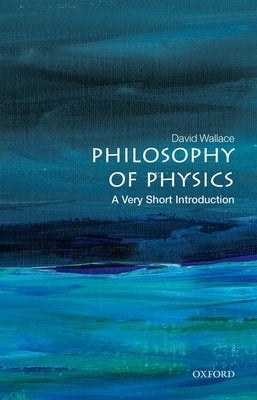1
/
of
1
Oxford University Press, USA
Philosophy of Physics: A Very Short Introduction
Philosophy of Physics: A Very Short Introduction
Regular price
$13.95 USD
Regular price
Sale price
$13.95 USD
Shipping calculated at checkout.
Quantity
Couldn't load pickup availability
Very Short Introductions: Brilliant, Sharp, Inspiring Philosophy of physics is concerned with the deepest theories of modern physics--notably quantum theory, our theories of space, time and symmetry, and thermal physics--and their strange, even bizarre conceptual implications. A deeper understanding of these theories helps both physics, through
pointing the way to new theories and new applications, and philosophy, through seeing how our worldview has to change in the light of what we learn from physics. This Very Short Introduction explores the core topics in philosophy of physics through three key themes. The first-- the nature of space, time, and motion--begins by considering the philosophical puzzles that led Isaac Newton to propose the existence of absolute space, and then discusses how those
puzzles change--but do not disappear-- in the context of the revolutions in our understanding of space and time that came first from special, and then from general, relativity. The second--the emergence of irreversible behavior in statistical mechanics--considers how the microscopic laws of physics,
which know of no distinction between past and future, can be compatible with the melting of ice, the cooling of coffee, the passing of youth, and all the other ways in which the large-scale world distinguishes past from future. The last section discusses quantum theory--the foundation of most of
modern physics, yet mysterious to this day. It explains just why quantum theory is so difficult to make sense of, how we might nonetheless attempt to do it, and why the question has been highly relevant to the development of physics, and continues to be so. ABOUT THE SERIES: The Very Short Introductions series from Oxford University Press contains hundreds of titles in almost every subject area. These pocket-sized books are the perfect way to get ahead in a new subject quickly. Our expert authors combine facts, analysis, perspective, new ideas, and
enthusiasm to make interesting and challenging topics highly readable.
Author: David Wallace
Publisher: Oxford University Press, USA
Published: 07/01/2021
Pages: 160
Binding Type: Paperback
Weight: 0.22lbs
Size: 6.80h x 4.20w x 0.50d
ISBN: 9780198814320
pointing the way to new theories and new applications, and philosophy, through seeing how our worldview has to change in the light of what we learn from physics. This Very Short Introduction explores the core topics in philosophy of physics through three key themes. The first-- the nature of space, time, and motion--begins by considering the philosophical puzzles that led Isaac Newton to propose the existence of absolute space, and then discusses how those
puzzles change--but do not disappear-- in the context of the revolutions in our understanding of space and time that came first from special, and then from general, relativity. The second--the emergence of irreversible behavior in statistical mechanics--considers how the microscopic laws of physics,
which know of no distinction between past and future, can be compatible with the melting of ice, the cooling of coffee, the passing of youth, and all the other ways in which the large-scale world distinguishes past from future. The last section discusses quantum theory--the foundation of most of
modern physics, yet mysterious to this day. It explains just why quantum theory is so difficult to make sense of, how we might nonetheless attempt to do it, and why the question has been highly relevant to the development of physics, and continues to be so. ABOUT THE SERIES: The Very Short Introductions series from Oxford University Press contains hundreds of titles in almost every subject area. These pocket-sized books are the perfect way to get ahead in a new subject quickly. Our expert authors combine facts, analysis, perspective, new ideas, and
enthusiasm to make interesting and challenging topics highly readable.
Author: David Wallace
Publisher: Oxford University Press, USA
Published: 07/01/2021
Pages: 160
Binding Type: Paperback
Weight: 0.22lbs
Size: 6.80h x 4.20w x 0.50d
ISBN: 9780198814320
About the Author
David Wallace is the Mellon Chair in Philosophy of Science at the University of Pittsburgh, and has joint affiliations with the department of Philosophy and the department of History and Philosophy of Science at Pittsburgh. He has previously taught at Oxford University and University of Southern
California. He has worked on many areas of philosophy of physics, including statistical mechanics, symmetry, quantum field theory, and quantum gravity, but he is best known for his work on the Everett (many-worlds) interpretation of quantum mechanics. He is the author of The Emergent Multiverse,
(2012).
Share


